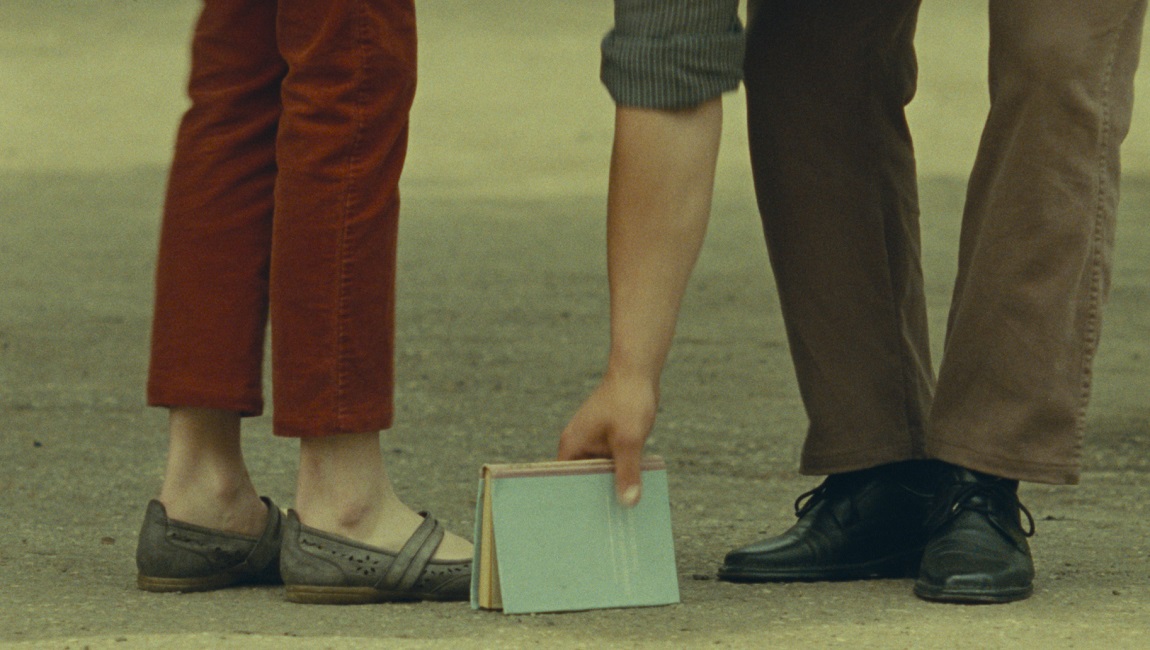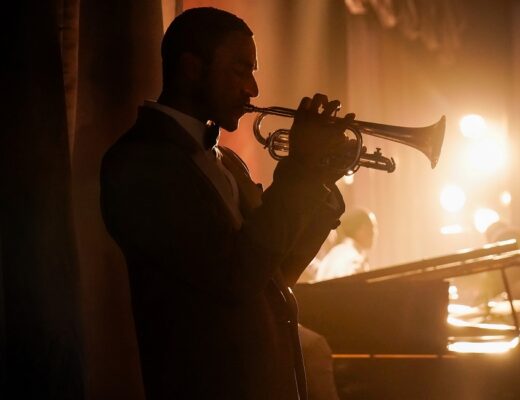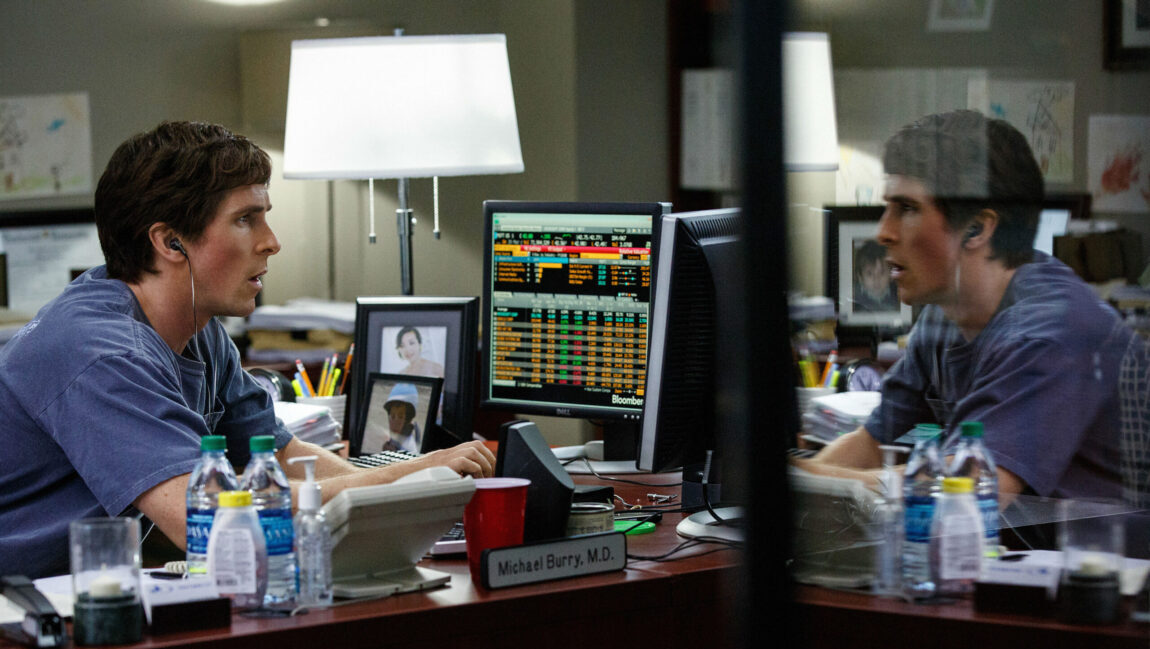Neil Jordan is one of those directors whose reputation mysteriously exceeds his productivity. Few of his films stand out as anything more than thrill or gimmick, but they’re often garbed in a thick drape of aesthetic matter that makes them look fuller than they are, and which helps them linger in our memories. Jordan is what could be called a Scene Director — a filmmaker who creates indelible moments that compensate for larger mediocrity. These moments feature pulses of deep color — slightly off primary — and moving textures, liquid or fabric, that ripple across the screen. We can tell which of Jordan’s films are more expressive of his own whimsy versus those that concede to the demands of his producers. The former have a fleshy feel that gives the impression of substance, but that substance tends to be illusory, inspired by visual cues rather than an intelligent narrative. His latest film, Ondine, is typical Jordan: it has a tactile atmosphere that presses like a wet sponge, but its story is cardboard and its execution — in this case — is far too precious. But Jordan (working in a visual medium, after all) earns a few nods for his ability to wring a consistently intense tone out of damp air, one that hangs around for the movie’s duration. It’s too bad that a soggy atmosphere draws our attention to an even soggier storyline; only the atmosphere is worth anything.
Like many a precious export from the UK in recent years, Ondine opens with a sigh. Romantic fare for the traditional set, it drenches us in nostalgia for a not-quite-real and not-quite-happy coastal idyll. We’re guided into Jordan’s world by Irish Film Board formula: Gaelic chords and sweeping shots of quaint inlets made quainter by the contrasting sea and by our sense of current-day tumult hemmed back by hillsides. Working a fishing trawler in this inlet is a hero with a de rigueur twee name (Syracuse), played by Colin Farrell. Syracuse (or “Circus,” an even more precious twist of nomenclature justified in the merest way by expository references to clown-like behavior) is blessed, of course, with a precocious daughter, Annie (Alison Barry), whose face is regularly spot-lit with a seraphim glow and whose character is founded on grating twee catchphrase (e.g. “curiouser and curiouser!”). All of this precocious twee preciousness frames the discovery of a beautiful woman (Alicja Bachleda) in Syracuse’s fishing net, who’s taken for a selkie by father and daughter and who goes by the mythical name of Ondine. She sings the fish into Syracuse’s nets and she’s perfectly happy cleaning house and helping her man succeed at a difficult job. She tells him “you’re the only one” and refuses to let others see her. She sports lacey black underwear and looks like sex even in a damp sack dress. She’s a domestic goddess who stands in perfect counterpoint — at least for much of the film — to Syracuse’s nagging ex and his dead mother, who was “large and awkward,” and decidedly “not like” Ondine in any physical way (though we learn the two women share an ethnic background, eventually, as well as a taste for loner-ism).
Naturally, Ondine is as pliant as she is irresistible, a dream girl and dream mom with a secret that Syracuse and Annie keep close to their breasts. Selkie or no, Ondine is more appealing company than Annie’s drunken mother (Dervla Kirwan) and her mother’s drunken boyfriend (Tony Curran), who tickles Annie with sinister fingers when they’re alone. Ondine is completely focused on her new keepers, who are ostracized by villagers, mocked by family, and tolerated by the parish priest (Stephen Rea in typical monotonous mode). Syracuse exhausted friendships with his alcoholism, and Annie’s wheelchair has turned her into a target. Ondine arrives with a surfeit of affection and lavishes it all over the outcasts—she’s a figure of wish-fulfillment, whether that wish is health or wonder or interspecies sex. Sprung from the water, Ondine is a purifying presence for two characters with disease running through their veins; her nurturing does more for Annie than a dialysis machine, and when Syracuse deprives himself of her company, he pickles himself all over again. Jordan tries very hard to give his fairytale girth through metaphor and (un)surprising resolutions, but his efforts at dramatic irony are feeble, and he’s more interested in fluffing up the sentiment than in storytelling. Lyricism has no lift if it’s weighed down by slop, and Jordan does a disservice to the lore he’s treating not by attaching it to the solid modern world (which he does, eventually) but by attaching it to sick children and bedraggled Celts. He tries to make it ache too much, and some will push back.
For viewers who aren’t put off by this brand of sentimentality and who in fact take something away from such films, Ondine has some good in it. Foremost is its production design, a cold, misty overlay that penetrates to the bone. Pathetic fallacy has been ridiculed since Ruskin first trotted out the term, but Jordan’s a master of turning climate into emotion, or emotion into climate, and for great effect. The rainswept dim of Ondine will stay with viewers for years, like the spilled-paint palette of In Dreams or the coarse weave of The Company of Wolves. With Ondine, Jordan goes native, seizes on the standard Irish template and forges it into surreal form, making the environment a character in its own right and nailing the Gaelic sensibility as image-plus. Performances in Ondine are Jordan-solid — for all his emoting, Farrell plays himself with a bit of extra dimension here, dirt rubbed artfully into the creases of a restless face battened down by Cyclopean eyebrows (which upstage him every chance they get, and they get many thanks to Jordan’s love of doe-eyed close-ups). Farrell’s still self-aware and overextended, but there’s no doubting Syracuse’s professional and personal frustrations, his wonder towards Ondine, or the tenderness he feels for his child. The characters we see onscreen are real enough in better-written scenes, and the film’s soundtrack, credited to Sigur Rós’s Kjartan Sveinsson, is a mixed bag of the terribly trite (in the context of this film, at least) and the haunting. Score, in fact, perfectly reflects the movie in this sense. If you can buy what Jordan’s peddling, you’ll probably be satisfied with the goods.







